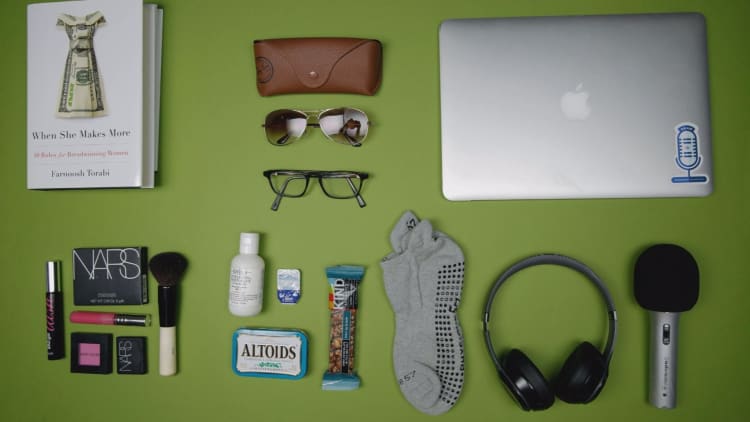Throughout my career as a business and financial journalist, the most time I've ever been granted to spend with a successful (read: rich and powerful) person for a story has been one hour — tops! Usually I can snag 20 minutes over the phone, but rarely without an eavesdropping publicist sharing the line.
In "Follow the Leader," my CNBC show debuting April 6, I have the rare chance to spend an incredible amount of time with some of the world's greatest entrepreneurs, usually between 48 and 72 hours.
In that time you can learn a lot about a person's beliefs, habits and tastes. You begin to see how they dissect problems and arrive at solutions. You witness how they treat people and learn what others think about them. For example...
With John Paul DeJoria, co-founder of John Paul Mitchell Systems and Patron Spirits, I learned how little he relies on technology. He doesn't use email or carry a smartphone. How does he work around that, exactly? And why does he wear almost the same thing every day? On a more serious note, I discovered JP is extremely generous with his charities, his employees and even strangers. "Success unshared is failure," he told me.
Spending time with Lyor Cohen, co-founder of 300 Entertainment, I saw how people look up to him as a pioneer in the music industry and a father figure. His connection with his artists runs deep, and it's a huge reason they choose to work with him over other executives at bigger, fancier labels. Cohen also hates to miss meals. He's 6' 5" so he can't go long without food. We detoured a few times en route to meetings so that he could grab a quick bite — tacos, pastrami sandwiches, you name it.
Two days with Gary Vaynerchuk, CEO of VaynerMedia, feels like two minutes. He moves at the speed of light, with dozens of meetings packed into a day. To accomplish so much there's a method to his madness, which became apparent during our time together. I learned how he likes to run meetings, his greatest pet peeves and how his best employees have figured out how to receive his undivided attention. I also learned that his hard work is driven by the pursuit of something he's wanted since he was a child. What that is...you'll have to watch the show to find out!
Some of my best moments with Katia Beauchamp, CEO of Birchbox, were spent en route to meetings, when we had one-on-one time to talk candidly about leadership, her challenges as a CEO and even some personal stuff, including marriage and kids. She opens up more in our time together than I've ever known her to do publicly — at one point being brought to tears.
Spend a couple days with the founders of Warby Parker and it's clear why this company has been valued at more than $1 billion. Dave Gilboa and Neil Blumenthal are masters at being calm, cool and collected. Rarely are decisions made without reference to date and analytics. While emotions can run high from time to time, these two friends try to stay true to the company's core beliefs and insist on driving their decisions using customer feedback, which tends to leave less room for error.
In the few days we spent with celebrity fitness guru Tracy Anderson, we quickly learned how she is, as she says, "building the plane while flying it." She emerged on the scene as one of the fastest-growing and most influential fitness brands, thanks to celebrity clients including Madonna and Gwyneth Paltrow. How she harnesses and builds on that success, while staying true to her vision and brand, is a lesson worth watching. It's not simple, and being new to the business world, Anderson finds she needs to rely on her experienced team and CEO to make tough choices.





